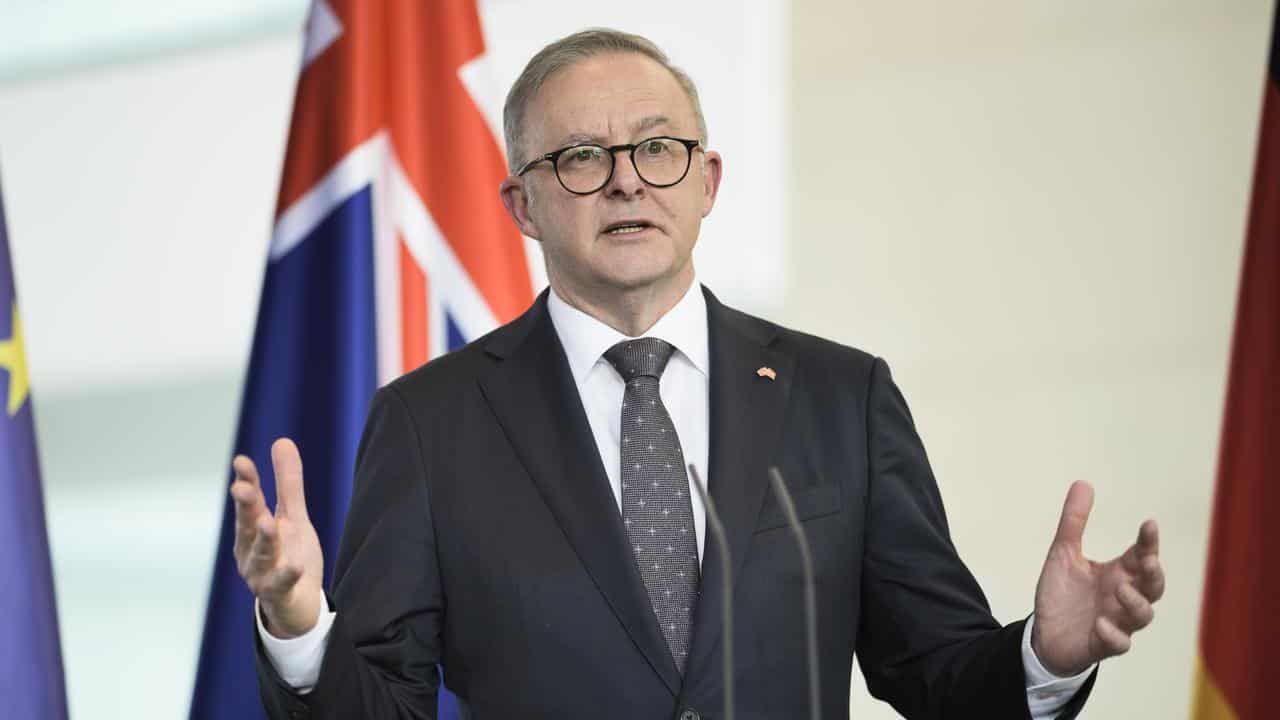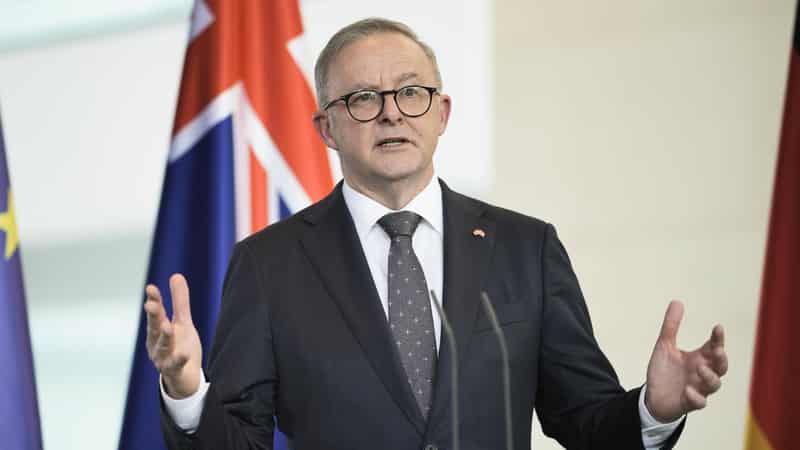
Australia will only sign a trade deal with the European Union when the agreement includes better market access for agricultural products.
Prime Minister Anthony Albanese laid down his bottom line for the ambitious multi-nation trade agreement following a meeting with German Chancellor Olaf Scholz in Berlin.
"Ultimately, our negotiations with the EU will only be concluded when we have a good deal and one that includes new market access for our agricultural products," Mr Albanese said.
Mr Scholz said an ambitious EU-Australia free-trade agreement was an important goal.
"It will support our regions to diversify our trade relations, thus becoming less dependent on individual suppliers," he said.
Mr Albanese will discuss the agreement with French President Emmanuel Macron on the sidelines of the NATO summit in the Lithuanian capital Vilnius on Wednesday.
"France has raised some issues but I'm confident they can be worked through and I'll be having an open and constructive discussion with President Macron," he said.
"But we're not asking for anything other countries have not received."
National Farmers' Federation chief executive Tony Mahar, who is in Brussels, said agriculture was always one of the final issues to be resolved in trade negotiations.
"That's proven the case with this one, it's challenging," he told the ABC.
"Trade is critically important to Australian agriculture."
Mr Mahar said if the offer presented by the Europeans wasn't good enough, the government should walk away before trying to strike a deal again later.
"It's too important not to get it right ... we want to make sure that we get this right for Australian farmers from the first day for the decades that follow," he told the ABC.
A sticking point in the trade talks is Europe's objection to Australian food producers using terms such as feta and prosecco.
Australian negotiators argue it is reasonable for farmers to use the terms to represent varieties rather than European regions.
Opposition trade spokesman Kevin Hogan said he agreed with the idea of walking away if farmers were not offered adequate access to the EU market.
"We shouldn't rush this deal if it's a bad deal for Australia," he told AAP.
Mr Hogan doesn't want to see "'grandfathering" of geographical indicators where only existing producers could use names such as prosecco and feta.
"The European Union is a big economy, there's a lot of customers there for us, but we certainly don't want to do that at any cost," he said.
"A deal can be done but we shouldn't blink before the Europeans do."









